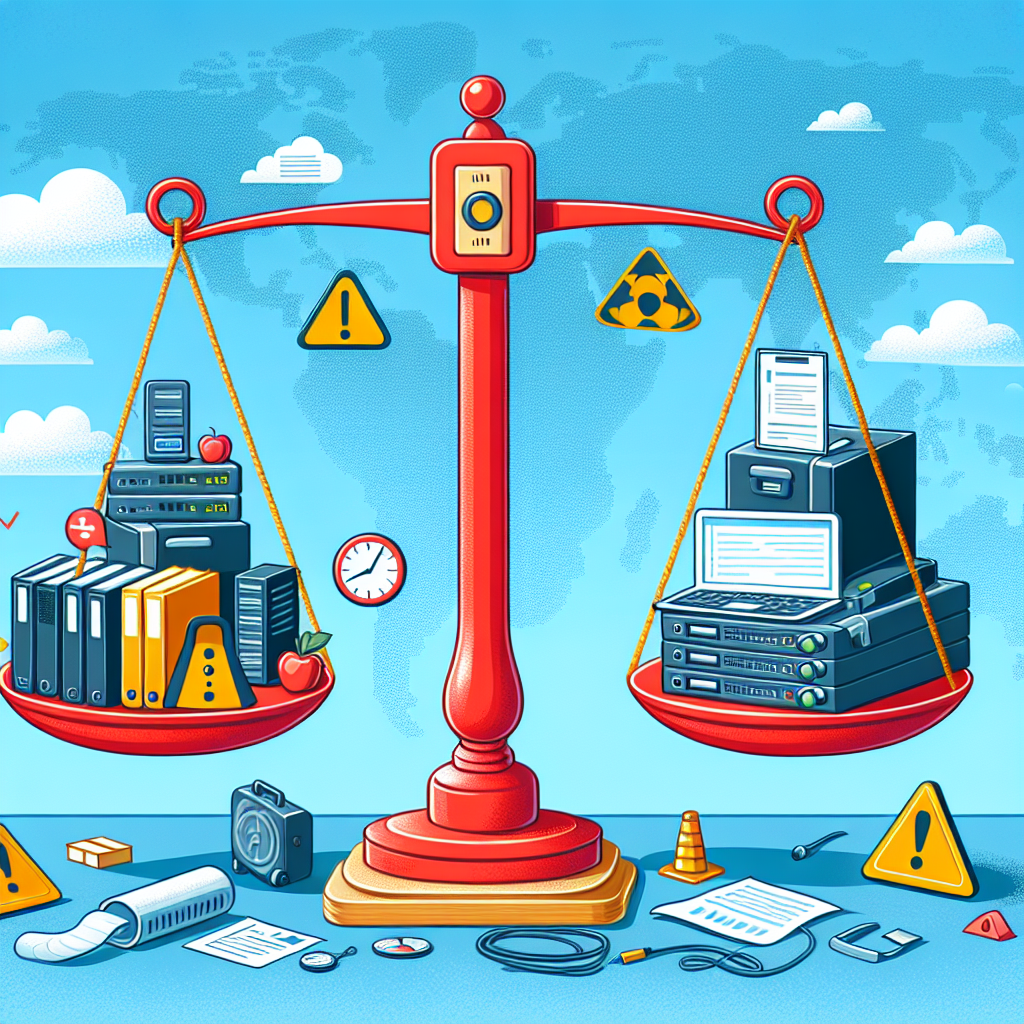In today’s fast-paced and constantly evolving business landscape, companies are constantly looking for ways to stay ahead of the competition. One popular strategy that many organizations are turning to is IT outsourcing. By outsourcing their IT services, companies can save time and money while also gaining access to specialized expertise and resources. However, like any business decision, IT outsourcing comes with its own set of pros and cons. In this article, we will explore the advantages and disadvantages of IT outsourcing to help you make an informed decision for your organization.
Pros of IT Outsourcing:
1. Cost Savings: One of the most significant benefits of IT outsourcing is cost savings. By outsourcing IT services, companies can avoid the high costs associated with hiring and training in-house IT staff. Additionally, outsourcing allows companies to pay for only the services they need, reducing overhead expenses.
2. Access to Specialized Expertise: IT outsourcing provides companies with access to a wide range of specialized expertise and resources that may not be available in-house. This can help organizations stay up-to-date with the latest technologies and trends, ultimately improving their competitive edge.
3. Focus on Core Business Activities: Outsourcing IT services allows companies to focus on their core business activities, rather than getting bogged down in the day-to-day management of IT operations. This can lead to increased productivity and efficiency within the organization.
4. Scalability: IT outsourcing offers companies the flexibility to scale their services up or down based on their needs. This can be particularly beneficial for businesses experiencing rapid growth or seasonal fluctuations in demand.
Cons of IT Outsourcing:
1. Security Concerns: One of the primary concerns with IT outsourcing is data security. By outsourcing IT services, companies are entrusting their sensitive data to a third party, which can pose a risk of data breaches or leaks. It is essential for organizations to carefully vet their outsourcing partners and establish strict security protocols.
2. Lack of Control: When outsourcing IT services, companies may relinquish some control over their IT operations. This can lead to communication challenges, delays in decision-making, and difficulties in aligning IT strategies with overall business objectives.
3. Quality Concerns: Outsourcing IT services to a third-party vendor may result in a lack of quality control. Companies must carefully monitor and evaluate the performance of their outsourcing partners to ensure that service levels meet their expectations.
4. Potential for Hidden Costs: While outsourcing IT services can lead to cost savings, companies must be cautious of potential hidden costs, such as additional fees for extra services or unexpected expenses related to contract negotiations.
In conclusion, IT outsourcing can offer numerous benefits to companies seeking to streamline their IT operations, reduce costs, and access specialized expertise. However, it is essential for organizations to carefully weigh the pros and cons of outsourcing before making a decision. By conducting thorough research, establishing clear communication channels, and implementing robust security measures, companies can successfully navigate the complexities of IT outsourcing and maximize its potential benefits.


Leave a Reply